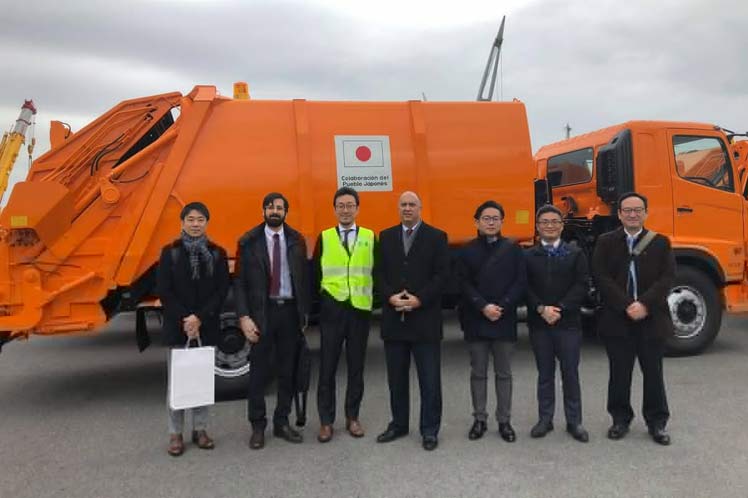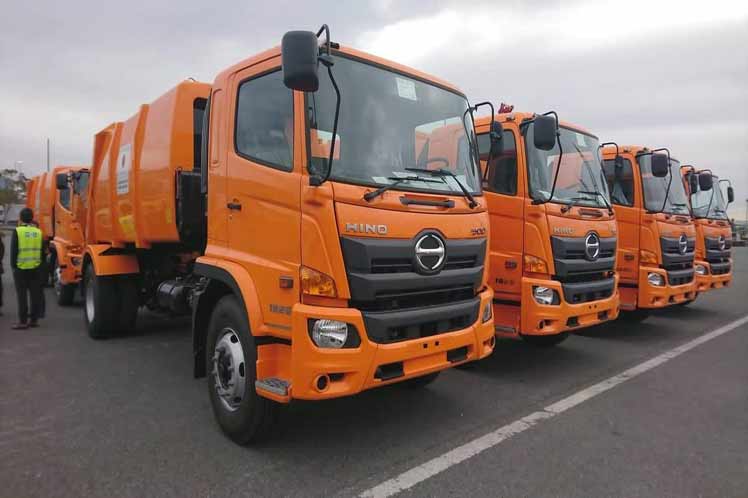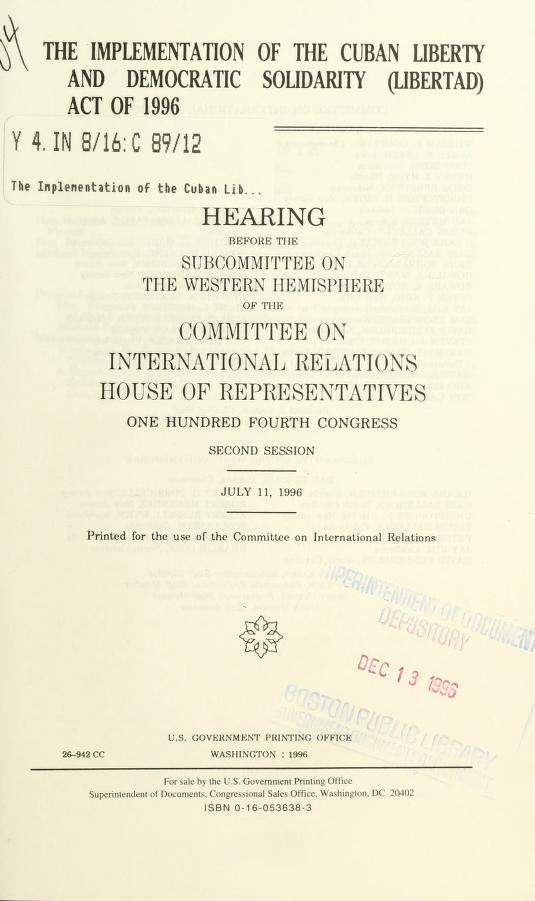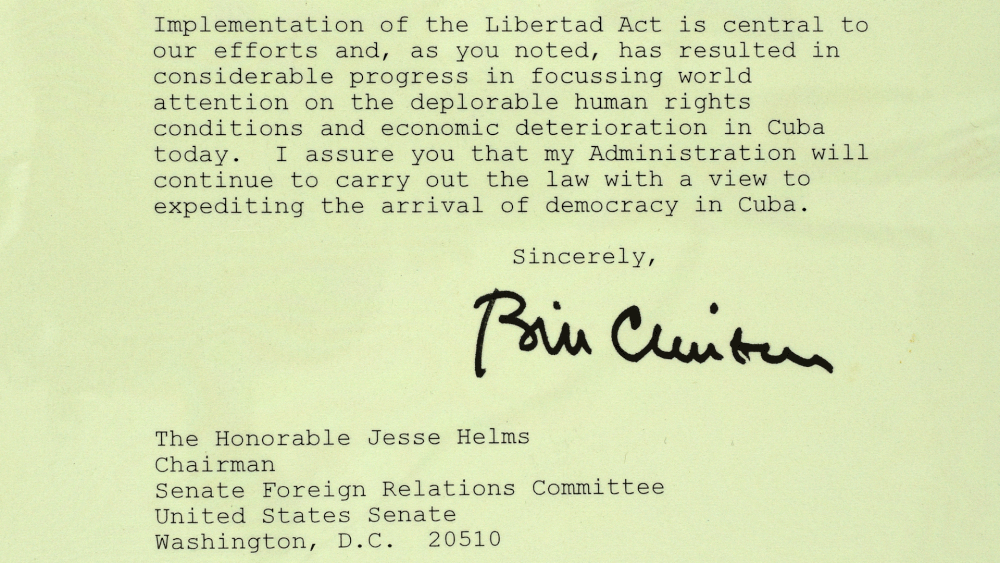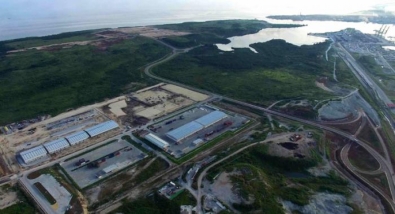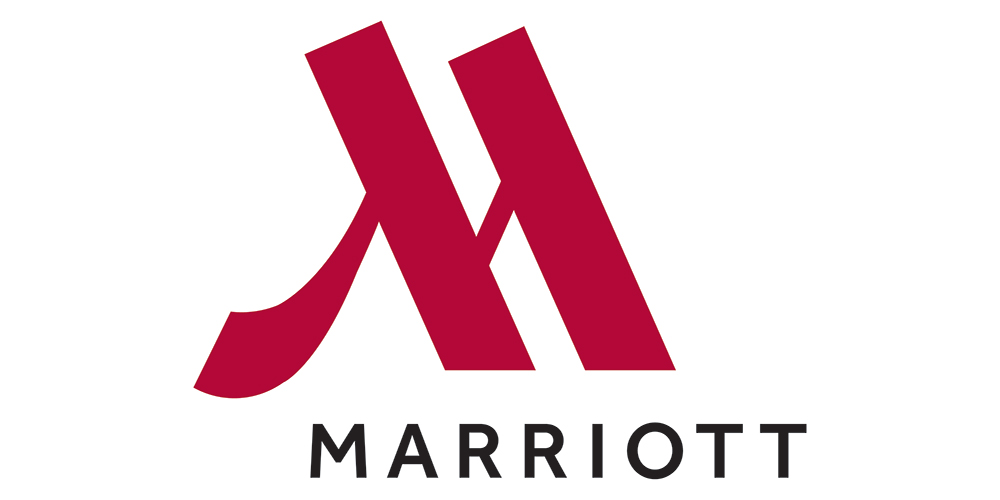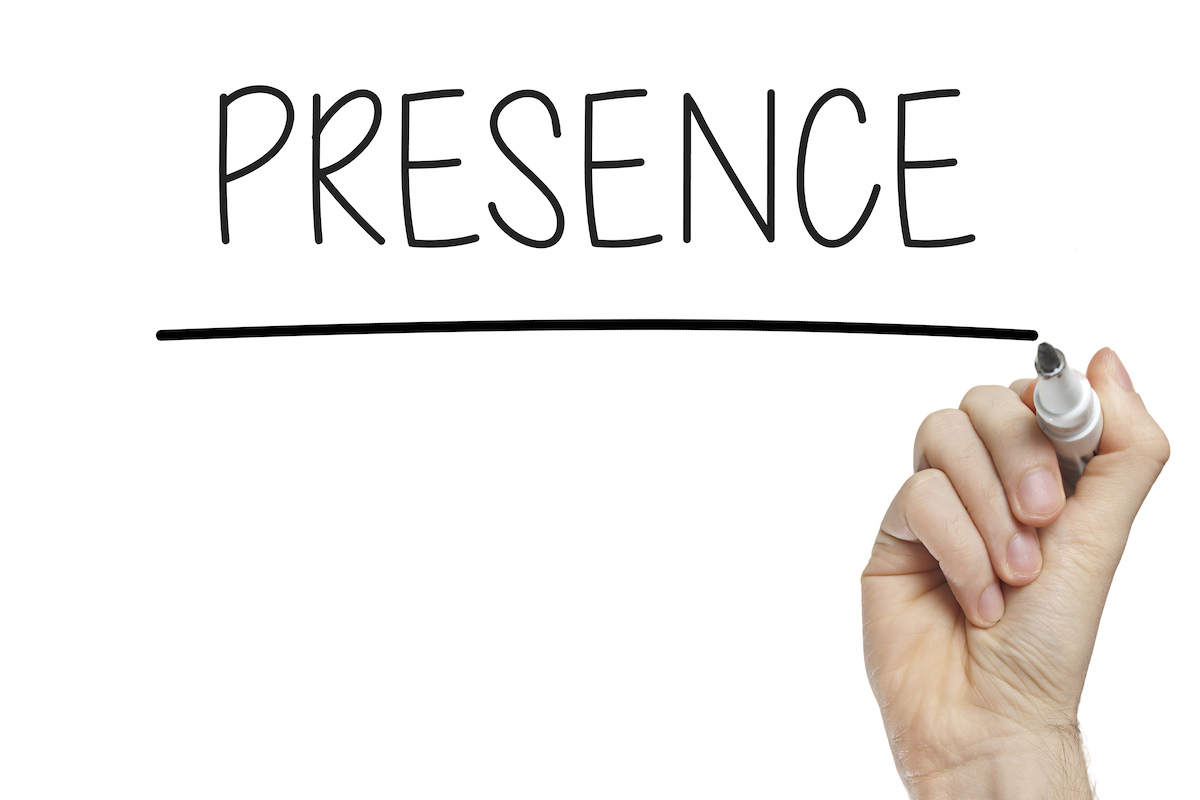The Curse Of The Legislative Graveyard
Why Pursue Self-inflicted Wounds
Challenge To Avoid Cuba = Venezuela + Nicaragua
An Amendment’s Coming; Get In Front Of It
Senators Rubio, Menendez, Cruz & Scott
Home BancShares Mystery Is Achilles Heel
Exporters Need To Be Public
Financial Institutions Need To Be Public
There is an eighteen-year-old legislative graveyard filled with headstones of initiatives that were “on the cusp” of success.
But for one brief moment in eighteen years, those legislative initiatives whose fates have been preordained and with headstones engraved in advance absent the date of internment were focused one country: Republic of Cuba.
Perhaps during the first quarter of 2019, the goal once again will be to change United States law from requiring payment-of-cash-in-advance for exports to the Republic of Cuba to authorizing, but not requiring, exporters to extend payment terms and for financial institutions to provide financing/loans for exports to the Republic of Cuba.
The Honorable Rick Crawford (R- Arkansas 1st District) wants to avoid the fate of the cemetery. He can, but he and his supporters need to move past believing that they always have a “pathway forward” and reject those supporters who belittle whom Representative Crawford and his colleagues in the United States Congress will need if the legislative journey is to be successful; including within the Trump Administration.
Supporters also need to accept the reality of the legislative marketplace with respect to the Republic of Cuba- the country is itself a commodity and supporters and opponents will need to negotiate an acceptable price for legislation to become law.
Supporters will also need to have at the ready a response to: The government of the Republic of Cuba may not be blamed for weather. However, the government of the Republic of Cuba can be blamed for not investing (or permitting viable direct foreign investment) in infrastructure to lessen the impact of weather upon the country’s ability to produce agricultural commodities and food products.
How does Representative Crawford respond to the question from a colleague: Why should the Republic of Cuba have access to payment terms and financing when rather than seek assistance from the Russian Federation to improve consumable infrastructure, it seeks a reported US$50 million to finance the purchase of vehicles for use by the military? What predicts the government will repay its obligations as contracted when it focuses upon increasing the mobility of the military rather than increasing the mobility of farmers by importing US$50 million in tractors? The government should be making a choice to lessen its focus upon the military.”
And, the nearer (economically, commercially and politically) the Republic of Cuba is or is perceived to be to Venezuela, the easier will be a “pathway forward” for members of the United States Congress and for the Trump Administration to disengage from any legislative effort to change United States statutes.
Separating the Republic of Cuba from Venezuela and from Nicaragua will become increasingly challenging for Members of the United States Congress while becoming less problematic for the Trump Administration to maintain that connectivity due to actions deemed non-democratic by the respective governments as reported by media.
There is also the impact of the decision by the Trump Administration relating to the implementation of Title III of the 1996 Libertad Act (“Helms-Burton”). With some restrictions, Title III permits lawsuits in United States Federal Courts against those who are using (“trafficking”) an asset in the Republic of Cuba upon which compensation was not paid to the owner.
On 16 January 2019, for the first time, Title III of the Libertad Act was suspended for less than six (6) months- as every occupant of the Oval Office has done since the inception of the statute in 1996. Using forty-five (45) days rather than one hundred and eight days (180) presents a likelihood of an ominous commercial, economic and political landscape for the Republic of Cuba, European Union (EU)-member countries, members of the World Trade Organization (WTO) and members of the United Nations. Once again, the Trump Administration has used weaponized potentiality to create uncertainty and, thus anxiety. Precisely the intention.
“Secretary’s Determination of 45-Day Suspension under Title III of LIBERTAD Act- The Secretary of State reported on January 16, 2019, to the appropriate Congressional committees that, consistent with section 306(c)(2) of the Cuban Liberty and Democratic Solidarity (LIBERTAD) Act of 1996 (22 U.S.C. 6021 - 6091) and the authority delegated to the Secretary by the President on January 31, 2013, the Secretary made a determination to suspend for forty-five days beyond February 1, 2019, the right to bring an action under Title III of the Act. This extension will permit us to conduct a careful review of the right to bring action under Title III in light of the national interests of the United States and efforts to expedite a transition to democracy in Cuba and include factors such as the Cuban regime’s brutal oppression of human rights and fundamental freedoms and its indefensible support for increasingly authoritarian and corrupt regimes in Venezuela and Nicaragua. We call upon the international community to strengthen efforts to hold the Cuban government accountable for 60 years of repression of its people. We encourage any person doing business in Cuba to reconsider whether they are trafficking in confiscated property and abetting this dictatorship.”
On 17 March 2019 or 18 March 2019, likely that a lawyer representing a client will be entering a Federal Court in Miami, Florida, Newark, New Jersey, and Tampa, Florida to file a lawsuit against someone- company or person.
There may be an opening for a mediation to resolve the certified claims; the private sector has shared a proposal with the Trump Administration: https://www.cubatrade.org/blog/2018/11/18/lojx6s6oe5epgonh6mub855d5ak143
If Title III lawsuits are permitted, likely will be little legislative appetite to simultaneously promote legislation that will be deemed by detractors as beneficial to the government of the Republic of Cuba rather than pressure the government of the Republic of Cuba to resolve the certified claims.
Lack Of Details From Exporters
There is no lack of support for legislation from organizations. However, some organizations (and their members) refuse to take positions with respect to specific components of legislation and regulations relating to the transaction process. For example, providing payment terms, providing financing, and implementing Direct Correspondent Banking Agreements (DCBA).
There is a lack of credibility when an organization supports legislation yet none of the members of the organization will support the legislation by specifically sharing how they would use the legislation if it became law.
There is a lack of support by individual exporters- and having those exporters be specific as to how they would use the proposed legislation if that legislation became law.
The lack of public support from specific exporting companies stating on-the-record (at hearings, in media releases, etc.) that they would today provide payment terms- and what those payment terms would be, to Republic of Cuba government-operated entities is harmful to any legislative effort.
Will the exporter provide financing based upon the credit report provided by Republic of Cuba government-operated Empresa Cubana Importadora Alimentos (Alimport), under the auspice of the Ministry of Foreign Trade of Cuba (MINCEX)?
Alimport has received up to two years to make payment for rice imported from Vietnam; and Alimport (and all Republic of Cuba government-operated entities) generally seek a minimum of 180-days with a preference for 360-days to make payment for imports.
Important to note that in 1999 and 2000, United States exporters opposed including a provision within the Trade Sanctions Reform and Export Enhancement Act (TSREEA) that would authorize payment terms for agricultural commodity and food product exports from the United States to the Republic of Cuba.
There were two reasons: First, United States exporters believed that if payment terms were authorized in the TSREEA, the first delay or default by any Republic of Cuba government-operated entity reported by the media would be disastrous for all exporters- and would likely result in an immediate halt of payment terms; and members of the United States Congress would have a choir of recrimination singing “I Told You So.” Second, although the lack of payment terms might result in less revenues from exports to the Republic of Cuba, there would be no risk to United States exporters or to the Republic of Cuba; and the Republic of Cuba could be presented (and it has been for eighteen years) to naysayers as the “safest export market in the world for United States companies.” Absent payment terms, the Republic of Cuba would be required to make purchases from the United States based upon quality of product and time of delivery for product along with whether such purchases would influence the political process in the United States.
After eighteen (18) years of payment-of-cash-in-advance for purchases, the Republic of Cuba could make a legitimate argument that authorizing payment terms, even with limited “toe-in-the-water” transactions, would be reasonable.
Philosophically, United States companies believe that their owners and managers should determine credit worthiness of a potential customer rather than the United States government.
Lack Of Details From Financial Institutions
There continues to be a lack of public support from financial institutions stating on-the-record (at hearings, in media releases, etc.) that they would today provide loans to Republic of Cuba government-operated entities based upon the credit profiles of those entities.
Would today Greenwich Village, Colorado-based CoBank or New York, New York-based J.P. Morgan Chase & Co. provide financing to United States companies who seek to export agricultural commodities and food products to the Republic of Cuba? Will CoBank or J.P. Morgan Chase & Co. provide financing based upon the financial statements provided by Republic of Cuba government-operated Empresa Cubana Importadora Alimentos (Alimport), under the auspice of the Ministry of Foreign Trade of Cuba (MINCEX)? Will Alimport provide financial statements? Will Republic of Cuba government-operated financial institutions provide financial statements?
For perspective, review an article referencing a 14 September 2016 hearing before the Committee on Agriculture of the United States House of Representatives. Significant to note that the individual quoted in an exchange with Representative Crawford is now Senior Director for Western Hemisphere Affairs at the National Security Council (NSC) in The White House:
https://www.cubatrade.org/blog/2016/9/17/from-inside-us-trade-lawmaker-pledges-to-push-ahead-on-cuba-trade-bill-after-house-hearing?rq=cobank
When New York, New York-based The Trump Organization transfers funds to the United States from one of the seven countries which host four of its hotels and seven of its golf clubs, The Trump Organization does not use a third country; it uses a straight line- a financial institution electronically transfers the funds from Canada, Dubai, Indonesia, Ireland or the United Kingdom to New York City. The Trump Organization does not want to waste time or waste money. The Trump Organization uses financial institutions with direct correspondent banking accounts.
One United States-based financial institution has a partial DCBA with Republic of Cuba government-operated Banco Internacional de Comercia SA (BICSA), a member of Republic of Cuba government-operated Grupo Nuevo Banca SA, created by Corporate Charter No. 49 on 29 October 1993 and commenced operation on 3 January 1994.
However, because BICSA does not have an account with the United States-based financial institution, a fully-operational direct correspondent relationship does not exist, and a multi-country triangular payment process continues- financial institutions in third countries have received fees on more than US$5.8 billion in transactions during the last eighteen years.
In 2015, the Office of Foreign Assets Control (OFAC) of the United States Department of the Treasury authorized Pompano Beach, Florida-based Stonegate Bank (2017 assets approximately US$2.9 billion) to have an account with BICSA. Stonegate Bank provides commercial operating accounts for the Embassy of the Republic of Cuba in Washington, DC and the Permanent Mission of the Republic of Cuba to the United Nations in New York City; the financial institution also handles other types of OFAC-authorized transactions.
In September 2017, Stonegate Bank was purchased by Conway, Arkansas-based Home BancShares (2018 assets approximately US$14 billion) through its Centennial Bank subsidiary.
The Obama Administration did not authorize BICSA under a general OFAC license or reportedly in the OFAC license issued to Stonegate Bank for it to have an account with Stonegate Bank, so Stonegate Bank has processed some transactions through Panama City, Panama-based Multibank, which has dealings with the Republic of Cuba.
One signature from Ms. Andrea Gacki, Director of the OFAC, can permit two-way direct correspondent transactions rather than the three-way transaction process that has existed for seventeen years.
The augmentation of the OFAC license would be consistent with the export-focused mandates from the Trump Administration to the United States Department of Agriculture (USDA) and United States Department of Commerce (USDOC).
Previously, officials within the OFAC and United States Department of State shared that if a license application were submitted, the license application would likely be approved.
That license would immediately benefit United States agricultural commodity and food product exporters from the first transaction- United States exporters will get paid more transparently, safer, faster and with less cost for each payment they receive from the Republic of Cuba.
Ports in Alabama, Florida, Georgia, Louisiana, Mississippi, Texas and Virginia would also benefit by a more efficient transaction process and vessel departure schedule as United States exporters would have confirmation of payment delivery in a more consistent manner- paperwork delays would be fewer due to not having to await documentation from outside of the United States.
To date, Home BancShares has refused to disclose the reason(s) it has not sought authorization from the OFAC for BICSA to have an account with Home BancShares- which is also an “Achilles heel” for any legislation in the United States Congress relating to changing TSREEA payment terms from cash-in-advance to authorizing payment terms and financing for agricultural commodity and food product transactions with the Republic of Cuba.
If each financial institution had an account with the other, the implementation of direct correspondent banking services would be operable- meaning that third-country financial institutions would no longer receive a commission for each United States-Republic of Cuba transaction. Direct correspondent banking saves money, saves time, is more transparent, and more safe.
Ironically, the four (4) members of the House of Representatives and two (2) members of the United States Senate from Arkansas (exporter of poultry, rice, etc.) have not demonstrated an interest in public engagement with Home BancShares to implement DCBA.
Amendment Is Coming; Accept It Early
Any proposed legislation to authorize payment terms and financing for exports of agricultural commodities and food products from the United States to the Republic of Cuba should include a prohibition provision relating to the Revolutionary Armed Forces of the Republic of Cuba (FAR) because The Honorable Marco Rubio (R- Florida), The Honorable Robert Menendez (D- New Jersey) and The Honorable Ted Cruz (R- Texas), each of Cuban descent, along with The Honorable Rick Scott (R- Florida) will seek to add, and succeed in adding an amendment to any legislation.
If advocates believe that they can “roll” these four members of the United States Senate, they are delusional. The most effective strategy is to negotiate early rather than risk an amendment, secondary amendment or “killer amendment.”
The Republic of Cuba-related provision within the recently-enacted Farm Bill became law, somewhat ironically, because of one (1) United States Senator representing the State of Florida- who initially opposed the provision, but supported the provision when language was added which prohibited the use of United States taxpayer funds with entities in the Republic of Cuba controlled by the military. The United States business community did not oppose that prohibition.
The Farm Bill includes a provision authorizing the use in the Republic of Cuba of funding from the United States Department of Agriculture (USDA) for Market Access Program (MAP) and Foreign Market Development (FMD).
The provision in the Farm Bill was co-authored by two members of the United States Senate: The Honorable Heidi Heitkamp (D- ND), who lost her 2018 re-election, and Senator Rubio.
Senator Heitkamp agreed to include language submitted by Senator Rubio that would prohibit MAP and FMD funding to be used with Republic of Cuba entities that are controlled by the FAR, consistent with policies of the Trump Administration.
The specific language: “(d) Cuba. — Notwithstanding section 908 of the Trade Sanctions Reform and Export Enhancement Act of 2000 ( 22 U.S.C. 7207 ) or any other provision of law, funds made available under this section may be used to carry out the programs authorized under sections 222 and 223 in Cuba. Funds may not be used as described in the previous sentence in contravention with directives set forth under the National Security Presidential Memorandum entitled ‘Strengthening the Policy of the United States Toward Cuba’ issued by the President on June 16, 2017, during the period in which that memorandum is in effect.
Current Statistics
United States agricultural commodity and food product exports to the Republic of Cuba continue to decline; 16.1% thus far in 2018 compared to the same period in 2017- and have done so when commodity inventories have been high, commodity prices have been low and there would have been political value in purchases during a time of pain for United States farmers. Healthcare product exports have also declined; 44.1% thus far in 2018 compared to the same period in 2017.
Trade Sanctions Reform and Export Enhancement Act of 2000 (TSREEA) exports (agricultural commodities and food products) since first use by the Republic of Cuba in December 2001 are US$5,849,925,838.00 through October 2018 (data for November 2018 delayed due to the inability of the United States government to publish export data): Clinton Administration: US$0.00. Bush Administration: US$2,697,501,426.00. Obama Administration: US$2,700,145,225.00. Trump Administration: US$452,279,187.00. TSREEA requires that payments be made on a cash-in-advance basis; no other payment terms are permitted.
LINK To Complete Analysis (including reference article) In PDF Format
Article For Reference
https://www.cubatrade.org/blog/2016/9/17/from-inside-us-trade-lawmaker-pledges-to-push-ahead-on-cuba-trade-bill-after-house-hearing?rq=cobank
Inside US Trade
Arlington, VA
14 September 2016
Lawmaker Pledges To Push Ahead On Cuba Trade Bill After House Hearing
A Republican lawmaker from Arkansas will continue to push forward on his bill allowing private companies to extend credit to Cuba to purchase U.S. agricultural products following a Sept. 14 House Agriculture Committee hearing on trade with that country.
Rep. Rick Crawford indicated during the hearing on trade with Cuba that he is willing to meet with opponents to discuss changes to a bill allowing the issuing of private credit to Cuba to purchase agricultural products from the United States. A staffer in Crawford's office said he's hopeful there's enough support to move the bill during a potential lame-duck session later this year, but added the congressman will offer the bill again next year if it fails to get a vote this year.
The hearing comes after Crawford was promised a path forward for his bill in exchange for not proposing it as an amendment to a House financial services appropriations bill in July. That promise included a committee markup for the stand-alone bill.
Members raised several issues with Crawford's bill, H.R. 3687, including that private money from the U.S. will go to the Castro brothers or the Cuban military; that U.S. agricultural products will be traded through ports and property seized from American companies by the Cuban government; and that the U.S. will not see enough economic concessions in return for easing the embargo.
Agriculture Committee Chairman Michael Conaway (R-TX) and ranking member Collin Peterson (D-MN) both said they support the legislation. A handful of other members, both Republicans and Democrats, either specifically said they back Crawford's bill, or want their states' agricultural industries to have improved access to Cuba.
Rep. Steve King (R-IA) was one of the most vocal opponents to the legislation on the committee, saying the bill does not create new demand for U.S. products, and instead the U.S. would supplant imports from another market. Critics also said the bill only shifts existing U.S. exports from one market to another.
Crawford indicated he is willing to work with opponents of his bill to try strike a compromise on the language.
During an exchange with witness Mauricio Claver-Carone, executive director of Cuba Democracy Advocates, Crawford asked if the anti-Castro activist was willing to continue discussing the legislation outside the hearing. Claver-Carone said he would be open to such discussions and reiterated that he believes the bill needs stronger language ensuring private credit does not end up in the hands of the Castro government, and is instead issued to private citizens and business.
Such a policy would force Cuba to make significant economic changes, especially since all imports currently go through Alimport, a government-owned entity, and not through private companies.
“With all the sincerity, would you be willing to continue the dialogue to bring this to the satisfaction to the folks in south Florida? If we can do that, we can move forward to reaching an agreement,” Crawford said.
Claver-Carone cautioned the committee against voting for the bill in response to a drastic decrease in U.S. agricultural exports to Cuba since 2009. While several nations including China, Korea and Brazil allow the extension of credit that is backed by their respective governments, which gives their agricultural industries an advantage over the U.S., he added Cuba has a history of trying to influence foreign lawmakers through spending and changing its import practices to target specific congressional districts or industries. He added Cuba also has a history of failing to pay its bills on time.
If the U.S. does scale back elements of its existing trade embargo, Claver-Carone said, it needs to see concrete changes in Cuban policies, such as lifting a current prohibition on U.S. companies working directly with privately owned businesses.
“The Castro regime does not allow that currently,” Claver-Carone said. “We want to encourage that -- private ownership. If Congress sent that message to the regime, 'please allow your people to be independent entrepreneurs, have property rights and to trade freely with the United States'… if were going to export our principles, we should do it under the conditions and terms that are consistent with those principles.”
A key question that was not answered during the hearing is whether private export companies or banks are willing to extend credit to Cuba.
Witness Karen Lowe, senior vice president and agriculture export finance division head at CoBank ACB, a company that provides agriculture credit, said anyone issuing credit will want to know whether they are working with Alimport or another entity. U.S. companies will also want more access to financial and credit information, especially because any credit issued will not be backed by the U.S. government.
That is a key difference between the U.S. and other governments, Lowe pointed out. Other governments have backed the credit their private industries extended to Cuba.
“In the very short-term, the impact this bill has will be somewhat limited, but it does create a level playing field,” Lowe said. “More things need to happen -- particularly with the credit worthiness of the importing agency in Cuba.”
John Kavulich, president of the U.S.-Cuba Trade and Economic Council, a group that analyzes U.S.-Cuban policies, said nothing new came out of the hearing regarding U.S.-Cuban relations. Kavulich maintained his position that lawmakers are wasting their time focusing on Crawford's bill, especially since no legislation on Cuba has passed in nearly 16 years. House Speaker Paul Ryan (R-WI) and key members of the Senate have also opposed easing the embargo.
Instead, Kavulich said more pressure should be directed at the Obama administration to issue changes to the embargo as President Obama prepares to leave office in January, especially since Cuba will be a low priority under a new administration.
It will also be easier for lawmakers to wait until 2018, when Raul Castro is expected to step down from power, in order to build support for any Cuba-centric legislation. Current law limits what can be done under the embargo as long as the Castros remain in power.
“For many members of Congress, there are only two people that live on that 800-mile-long archipelago, and they're both named Castro,” Kavulich said, referring to brothers Raul and Fidel Castro, who have run the one-party communist state for decades. “That makes it easier for some members of Congress who are just vehemently opposed to what the Castros stand for, to help 11.3 million people whose names are not Castro.” -- Nate Robson



